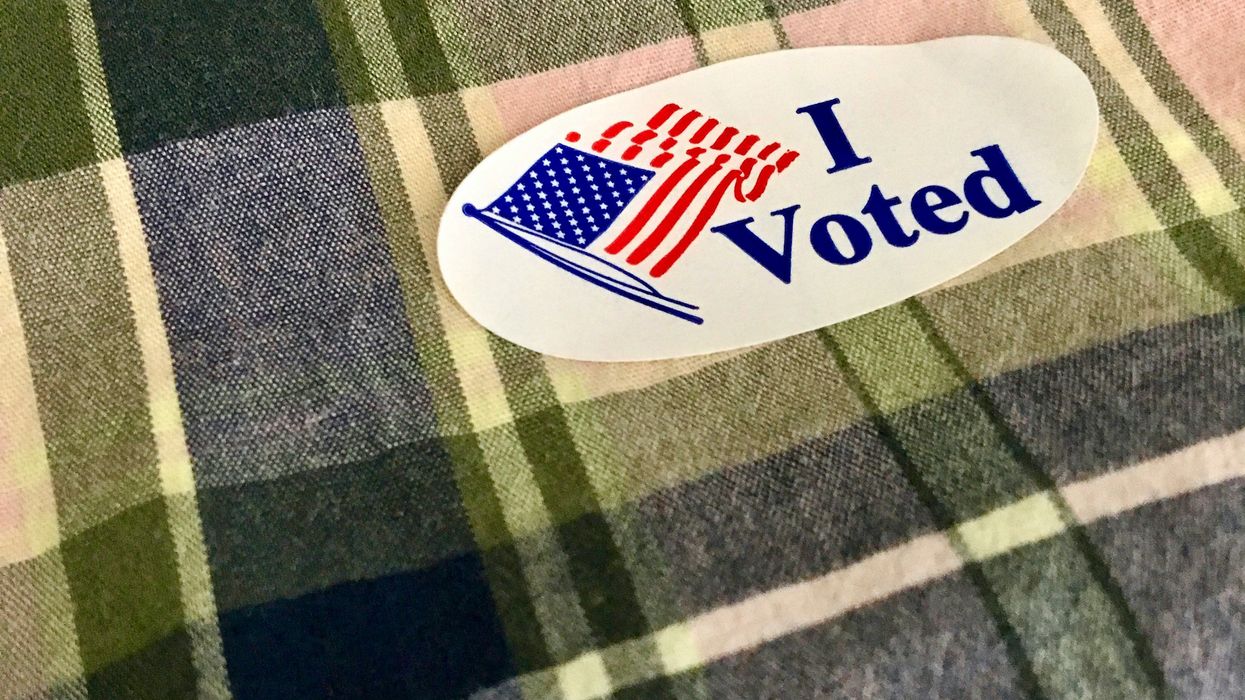The Fulcrum is committed to nurturing the next generation of journalists. To learn about the many NextGen initiatives we are leading, click HERE.
We asked Roselyn Gonzalez, a recent graduate of the University of Nebraska–Lincoln and a cohort member with the Fulcrum Fellowship, to share her thoughts on what democracy means to her and her perspective on its current health.
Here’s her insight on the topic.
Civic responsibilities, such as citizen-initiated proposals, allow voters to bypass their state legislature. But what happens when representatives adamantly undermine their constituents by drastically altering voter-approved measures? As a Nebraskan, I am one of many voters who feel as if their government is not working in their best interest.
Notably, the state has a unicameral legislature, which was implemented in 1934 when voters approved a constitutional amendment. Among many reasons Nebraskans decided to adopt the structure was to minimize legislative gridlock, a situation where the legislative process stalls because lawmakers cannot agree.
During Nebraska’s 2025 legislative session, voter-approved initiatives were heavily debated, despite receiving an overwhelming amount of support. Ballot Measure 437 was approved by 71% of voters, allowing the use of up to five ounces of cannabis for medical purposes, and Measure 436 received a 75% approval rate, obligating businesses to offer paid sick leave. If a business has at least 20 employees, it must allow up to seven days of leave. If the company has fewer than 20 employees, the allowed leave is five days.
But several paid sick leave benefits were rolled back, and medical marijuana is still unregulated because our legislators couldn’t work together.
“It’s pretty clear an effort to undermine, at least in part, if not entirely, the verdict that the Nebraska voters came to,” said political consultant Ryan Horn. “Politically, that’s kind of a dangerous game.”
While we are seeing active developments towards the regulation of medical marijuana, there are barriers in the way of breakthroughs: the implementation of the new committee of The Nebraska Medical Cannabis Commission, current lawsuits, and the possibility that the Department of Health and Human Services will be contracted to partner with the commission which is problematic. The citizen-led ballot was a way to divert from DHHS.
Notably, the health agency has strongly opposed legalization for years. They have the potential to derail the intent of the cannabis measure.
On the other hand, the paid sick leave initiative is set to take effect on October 1, 2025; however, it has been drastically altered. One example is the modification of waiting periods for paid sick leave. The measure initially stated that employees would be able to use accrued paid sick leave, but it was later modified to allow paid sick leave after 80 hours of consecutive employment.
Voters disapproved of this.
It’s essential to note that Nebraskans have consistently voted for Republican candidates. The support levels of these measures would not be high without Republican votes. Although we are in a period of political polarization, this is not about which party you align with – our representatives are working against us.
“Republicans vote for these things a lot,” said Horn, referring to progressive ballot initiatives despite affiliation with the Republican party. “You don't win 60% of the vote in Nebraska without winning a lot of Republican votes.”
In 2022, citizens voted to raise the minimum wage by $1.50 each year through 2026. By 2027, the minimum wage is scheduled to increase in line with the cost of living.
The initiative was brought into question during this legislative session. Again, threatening direct democracy.
Alarmingly, this is not exclusive to my home state. Many other states are facing a similar fate, with some approving efforts to make it harder for voters to have the opportunity to change laws. In 2026, Utah citizens will have to choose to require ballot initiatives to receive at least 60% of the vote if the law calls for tax increases. Currently, the state’s constitutional amendment requires a simple majority vote for a law to be enacted. Utah Senate President Stuart Adams argues that if citizen-led initiatives are not regulated, it can destroy the state.
In Missouri, the legislature voted to repeal paid sick leave after voters approved it. Just a month after it was passed, the lawmakers acted quickly to reverse the measures.
The exhaustion voters are experiencing is causing citizens to disengage from politics. Overwhelmed by national politics, it's hard to keep up with what's going on in your home state. The local media coverage is scarcer than ever; there is no megaphone to sound the alarm. There are still ways to have your voice heard. Don’t back down; it is up to us to hold our representatives accountable.
Pushing the legislature can start in many ways; one way to begin is by holding citizen assemblies, a group of citizens selected randomly from the state’s population. The goal is to increase public engagement, sort of like jury duty, but for ordinary people. Initiatives that would be considered are not disclosed until the members are chosen.
Often, citizen-led ballots allow for too many initiatives, which can overwhelm voters; citizen assemblies can help regulate the number of measures on a ballot. Additionally, public hearings on an initiative can provide full transparency before it is presented to legislators. As a result, these tools can help strengthen direct democracy, and the structure can help fulfill the goal of injecting citizen control into the democratic process.
Roselyn Gonzalez is a recent graduate of the University of Nebraska–Lincoln with over three years of experience in multimedia journalism. She’s a passionate photographer and politics enthusiast, and most of her time is spent behind a lens or reading up on public policy. Her work focuses on stories about social issues, civic engagement, and underrepresented voices.




















Trump & Hegseth gave Mark Kelly a huge 2028 gift